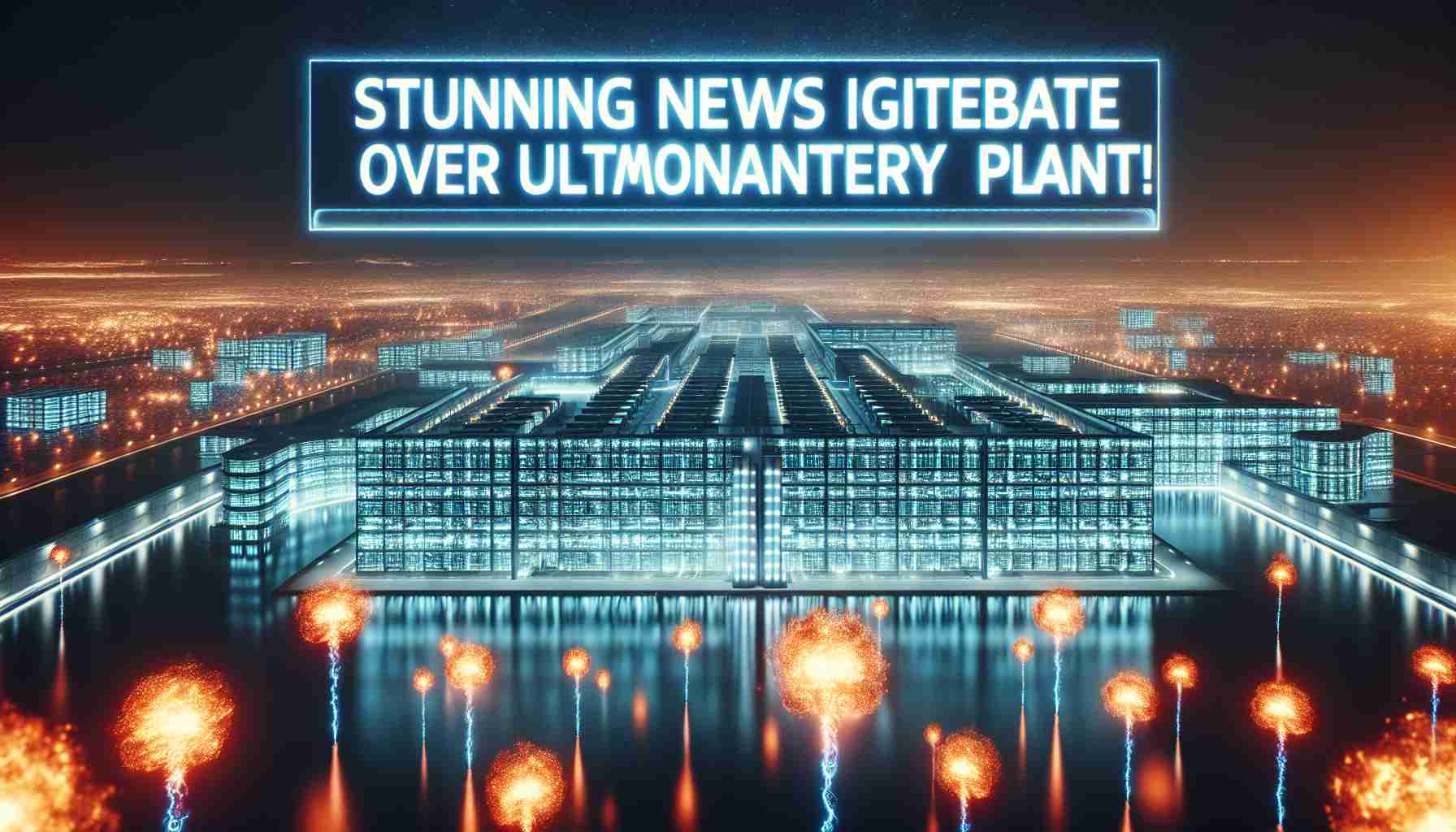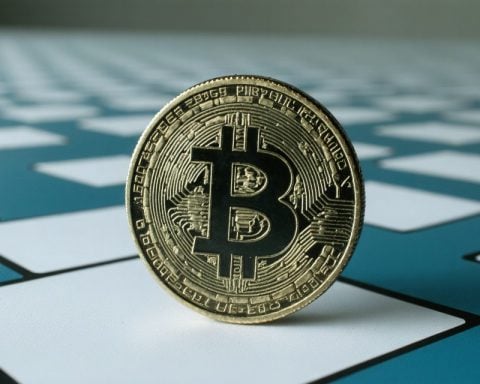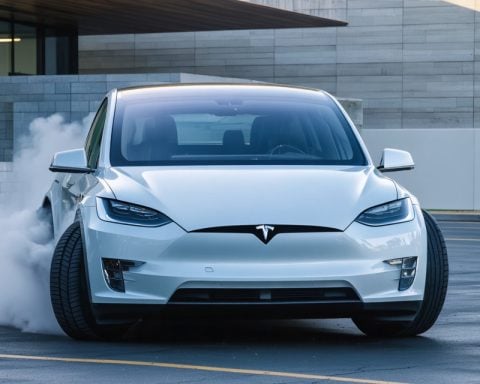Amid rising tensions surrounding Elon Musk’s past actions and statements, a provocative protest unfolded at Tesla’s Gigafactory located in Berlin-Brandenburg, Germany. Activist groups including the Center for Political Beauty from Germany and the UK-based Led By Donkeys took bold measures to project a controversial message onto the facility.
The projection featured the phrase ‘Heil Tesla’ in a font that mimicked Tesla’s branding, sparking immediate backlash and conversation. This protest was triggered by Musk’s recent hand gesture at the swearing-in ceremony for U.S. President Donald Trump, which many have interpreted as reminiscent of Nazi salutes.
Campaign organizers highlighted the dangers of such symbolism, equating Musk’s actions to historical salutes associated with oppressive regimes. Visuals displayed alongside the message included an image of Musk performing the gesture during his public appearance, further intensifying the protest’s impact.
Musk, known for his influential presence in the tech world and beyond, has dismissed these comparisons as unfounded and manipulative. His recent remarks during the Trump inauguration—where he conveyed support to the audience—have drawn the ire of many, particularly as he openly backs far-right political agendas in various contexts.
As the discussion continues, this incident at the Gigafactory raises important questions about leadership, symbolism, and the responsibilities of public figures.
The Broader Cultural Impact of Symbolism in Leadership
The provocative protest at Tesla’s Gigafactory serves as a microcosm of a larger societal discourse regarding the weight of symbolism in leadership positions. As figures like Elon Musk wield substantial influence in both the tech industry and mainstream culture, their gestures and communications carry ramifications that extend well beyond their immediate context.
The implications of this incident ripple through various societal layers, challenging our collective understanding of morality and responsibility. In an increasingly polarized world, public figures are scrutinized not just for their decisions but for their symbolic gestures. This scrutiny can shape public discourse, influencing cultural norms and potentially fueling movements on both ends of the political spectrum.
Moreover, the use of controversial symbolism in protests underscores a critical tactic employed by activists: provocation. By invoking historically charged imagery, activists not only capture attention but also initiate conversations about power, ethics, and the consequences of unchecked authority. Such strategies force society to confront uncomfortable truths about prejudice and the legacy of oppressive regimes, reminding us that symbolisms matter.
As we move forward, it’s essential to recognize the environmental effects of radical political engagement. The intertwining of technology, activism, and public awareness may lead to a surge of eco-conscious movements that challenge corporate practices amidst rising climate crises. The future demands leaders not only to innovate but also to uphold ethical standards that reflect societal values, fostering a culture of accountability and transparency.
In conclusion, the implications of symbols—whether wielded by protesters or public figures—can significantly influence the trajectory of society, shaping our cultural landscape and defining the responsibilities of influential leaders in an interconnected world.
Protest at Tesla’s Berlin Gigafactory Sparks Global Conversation on Leadership and Symbolism
Introduction
The recent protest at Tesla’s Gigafactory in Berlin-Brandenburg has stirred significant discourse surrounding the actions of CEO Elon Musk and their broader implications. Activist groups like the Center for Political Beauty and Led By Donkeys have utilized provocative tactics to convey a message that resonates deeply with historical symbolism and contemporary political issues.
Overview of the Protest
During the demonstration, a notable projection reading “Heil Tesla” emerged, drawing striking parallels to the company’s branding. This phrase has incited considerable backlash, particularly as it was linked to Elon Musk’s controversial gestures at a public event, which many observers have likened to Nazi salutes. The timing of the protest aligns with heightened tensions regarding Musk’s political affiliations and public statements.
Context Behind the Message
The protester’s choice of imagery and phrases points to a larger narrative regarding the influence of powerful figures in society. By spotlighting Musk’s past behavior, activists aim to draw attention to the potential normalization of extremist ideologies in mainstream discourse. The leaders of the protest have emphasized the dangers of allowing such symbolism to gain traction in today’s political landscape.
Musk’s Response and Broader Implications
In the wake of these events, Elon Musk has responded by dismissing the backlash as unfounded. He contends that the interpretations of his actions are misinformed and that efforts to equate his gestures with historical oppression are manipulative. This rejection of criticism adds to a growing context where public figures navigate scrutiny regarding their political stances and the symbolic weight of their actions.
Insights into Public Figures’ Responsibilities
The incident at Tesla’s Gigafactory poses critical questions about the responsibilities of influential individuals, particularly regarding their public representations and the potential ramifications of their actions. It opens a dialogue about how leaders can cultivate positive symbolism rather than inadvertently promoting divisive ideologies.
Future Trends in Corporate Responsibility
As protests like the one at Tesla’s Berlin facility increase, corporations and their leaders may face intensified scrutiny over their public conduct and political engagements. This trend highlights a shift towards greater accountability among public figures, particularly as audiences become more attuned to the social implications of their actions.
Conclusion
The protest at Tesla’s Gigafactory serves as a reminder of the significant impact that public figures like Elon Musk can have on societal norms and political discourse. As conversations continue, the balance between personal belief and public responsibility will be a focal point for both activists and corporate leaders alike.
For more information on Elon Musk’s influence and the interplay of politics in corporate settings, visit Tesla.


















